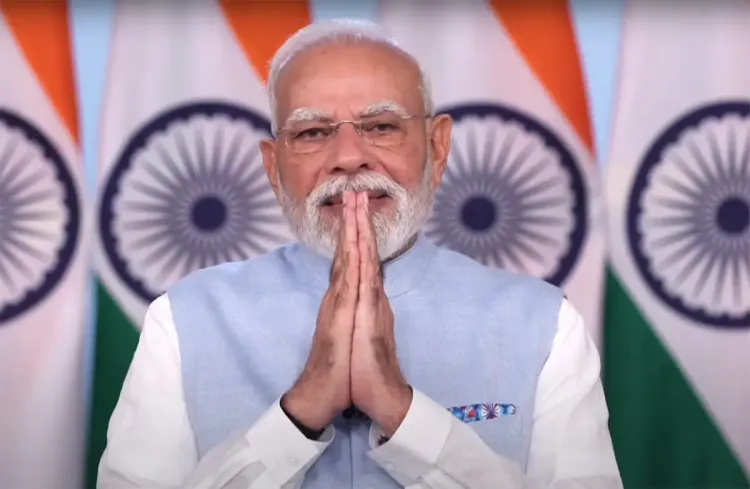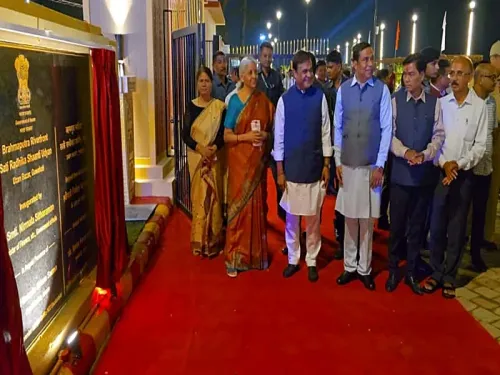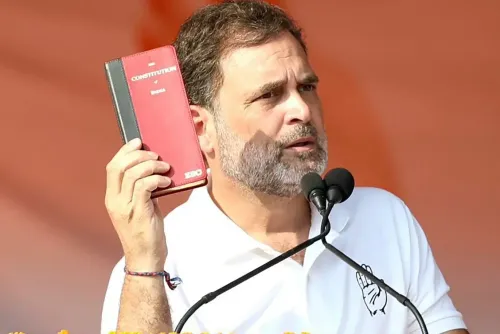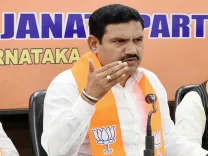What Strong Message Did PM Modi Deliver on Cooperative Federalism for Achieving Self-Reliance?

Synopsis
Key Takeaways
- PM Modi calls for cooperative federalism among states and Centre.
- GST reforms are seen as a pivotal step towards Aatmanirbhar Bharat.
- States are urged to enhance manufacturing and create investment-friendly environments.
- The reforms aim to simplify taxation and benefit the average citizen.
- The journey of GST reflects the need for a cohesive federal structure.
New Delhi, Sep 21 (NationPress) In his address to the nation on the eve of significant GST reforms, Prime Minister Narendra Modi delivered a powerful message about cooperative federalism, urging states to collaborate with the Centre in realizing the vision of a self-reliant India.
While extending greetings on the occasion of ‘Bachat Utsav’ or ‘Savings Festival’ and encouraging citizens to choose Indian products over foreign alternatives, PM Modi called on all state governments to actively participate in the Aatmanirbhar Bharat and Swadeshi initiatives.
“When the Centre and states work in unison, the aspiration of a self-sufficient India will materialize, leading every state towards development, and transforming India into a developed nation,” he remarked.
In his appeal for support, PM Modi urged state governments to enhance manufacturing in their respective regions with vigor and enthusiasm by fostering a favorable investment climate.
The Prime Minister's emphasis on cooperative federalism is crucial, especially as the extensive GST reforms initiated in 2017 sparked tensions between states and the Centre over issues such as revenue sharing, delayed compensation payments, loss of fiscal autonomy, and unequal decision-making authority within the GST Council.
As GST 2.0 approaches, PM Modi’s appeal to states reflects the intricacies of the new tax framework that has established a more cohesive national tax system but has also laid bare the challenges of India's federal structure, where maintaining a balance between state autonomy and central oversight proves to be complex.
Previously, PM Modi described the next-generation Goods and Services Tax (GST) reforms as historic, marking a significant stride towards Aatmanirbhar Bharat.
“Starting from sunrise on September 22, a new chapter in India’s tax system will commence,” he stated, referring to the reforms as the inception of a “GST Savings Festival” that will directly benefit the poor, middle class, women, small enterprises, and the youth.
“These reforms will enhance the savings of every Indian, enabling people to purchase their desired items with greater ease. This festive season, the joy of every household will multiply,” he emphasized, noting that the new GST framework would stimulate India’s economic growth.
Reflecting on the GST journey, the Prime Minister recounted the hurdles faced prior to 2017 when India’s tax landscape was ensnared in a complex web of levies like excise, VAT, and octroi.
“For decades, our citizens and traders were ensnared in a labyrinth of numerous taxes. Transporting goods from one city to another required navigating multiple checkpoints, completing endless paperwork, and paying arbitrary tolls. Ultimately, the burden fell on the impoverished consumer,” he explained.









